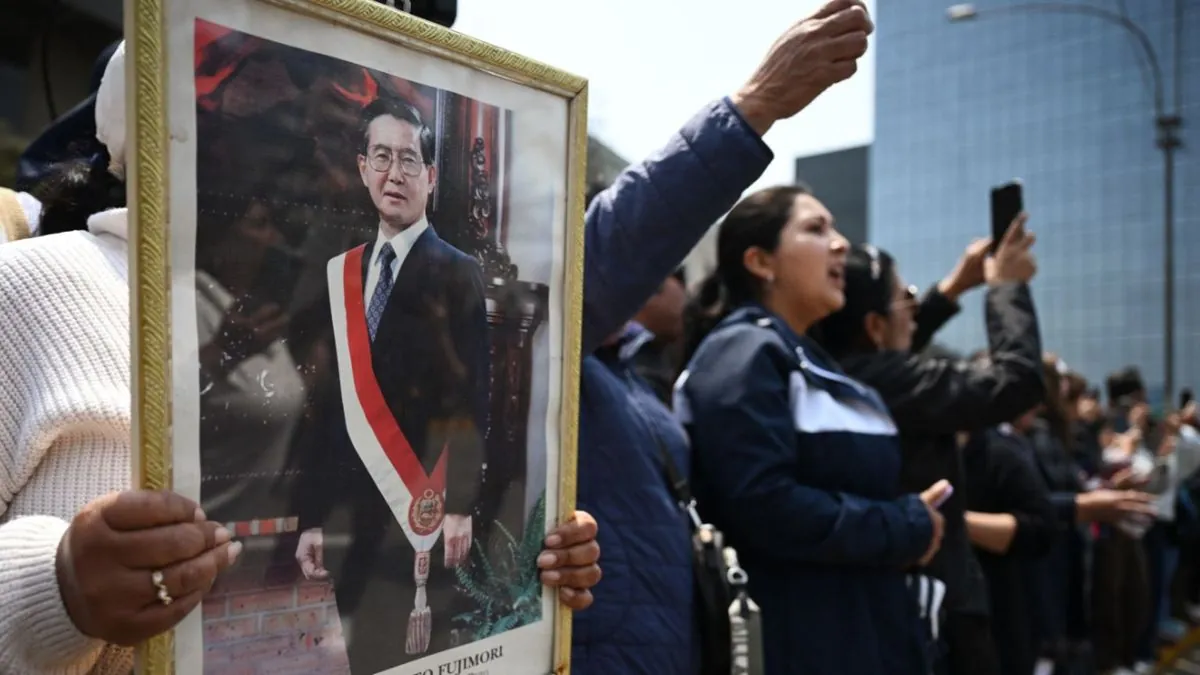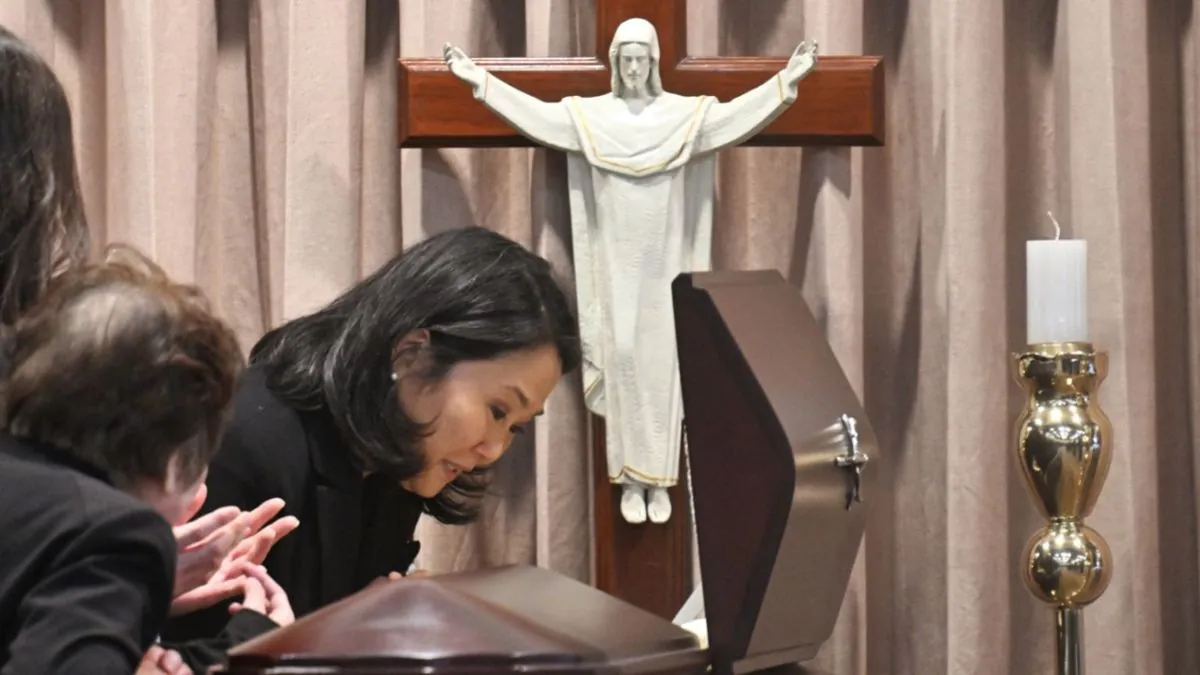Peru Mourns Ex-President Fujimori: Controversial Legacy Sparks Debate
Peru declares national mourning for former President Alberto Fujimori, who died at 86. His complex legacy of economic reforms and human rights abuses divides public opinion.

Peru's government has declared three days of national mourning following the death of former President Alberto Fujimori, who passed away on September 11, 2024, at the age of 86. The decision to honor the controversial figure has sparked debate across the nation, highlighting the complex legacy of his decade-long rule.
Fujimori, born on July 28, 1938, to Japanese immigrants in Lima, rose to prominence as an agricultural engineer and university rector before entering politics. His presidency, spanning from 1990 to 2000, was marked by significant economic reforms and a successful campaign against terrorist groups, most notably the Shining Path.
The former leader's body was taken to the Ministry of Culture to lie in state, with his children, Keiko and Kenji Fujimori, accompanying the flag-draped coffin. President Dina Boluarte met the siblings at the ministry, underscoring the government's decision to grant Fujimori a state funeral despite his controversial past.

Fujimori's presidency was characterized by a period of "competitive authoritarianism," during which he implemented neoliberal economic policies known as "Fujishock" to combat hyperinflation. His government was also responsible for capturing Abimael Guzmán, the leader of the Shining Path. However, his tenure was marred by human rights abuses and corruption scandals.
In 1992, Fujimori carried out a self-coup, dissolving Congress and the judiciary. His government also implemented a forced sterilization program affecting over 200,000 people, primarily from indigenous communities. These actions, along with other human rights violations, led to his eventual downfall and legal troubles.
After fleeing to Japan in 2000 amid a corruption scandal, Fujimori famously resigned via fax. He was later extradited from Chile to Peru in 2007 to face charges. In 2009, he was convicted of human rights violations and sentenced to 25 years in prison.
The decision to honor Fujimori has elicited mixed reactions from the public. Supporters, like businessman César Aquije, praised his infrastructure projects and economic reforms. However, critics, such as Gisela Ortiz, whose brother's death was linked to Fujimori's regime, condemned the government's decision to pay tribute to a convicted human rights violator.
Fujimori's health had been declining in recent years. He underwent surgery for a hip fracture in July 2024 and was last seen in public on September 4, 2024, leaving a hospital in a wheelchair. His oncologist, José Gutiérrez, revealed that Fujimori had suffered from tongue cancer that had spread to his lungs.
The former president's children, Keiko and Kenji, have both been involved in Peruvian politics, continuing their father's controversial legacy. The current administration's decision to honor Fujimori may be influenced by political alliances, as President Boluarte's government has relied on support from a coalition that includes the party led by Fujimori's children.
As Peru reflects on Alberto Fujimori's complex legacy, the nation remains divided over how to reconcile his economic achievements with the human rights abuses that occurred during his rule. The three days of national mourning serve as a reminder of the lasting impact of his presidency on Peruvian society and politics.
"Fujimori dies, convicted of human rights violations and corruption, and a murderous government like the one in the 90s pays tribute to him. Official messages of regret when there is impunity for his crimes."


































